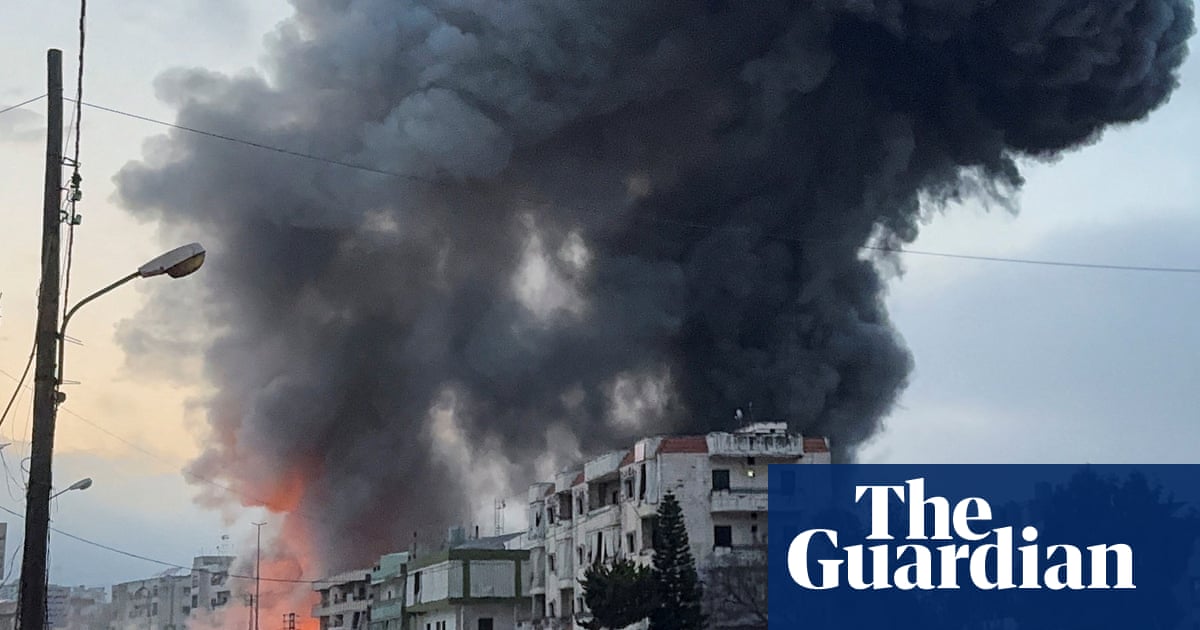Israel carried out a wave of airstrikes on southLebanon, killing one person and wounding another, before the first municipal elections in south Lebanon in more than nine years.
The strikes began on Thursday afternoon and the Israeli military issued an evacuation warning for residents of Toul, just outside the city of Nabatieh, before carrying out an airstrike there.
People were advised to evacuate to more than 500 metres away from a highlighted building in Toul that the Israeli military said was a facility belonging to the Iran-backedHezbollahmilitia.
Israel bombed at least five other towns in south Lebanon later on Thursday, killing what Israel said was a member of Hezbollah’s elite commando unit, the Radwan force.
Israel carries out near-daily airstrikes in Lebanon despite a November ceasefire that ended the Israel-Hezbollah war, which started after Hezbollah launched rockets at Israel on 8 October 2023 in solidarity with the Hamas attack the day before.
Israel has claimed it is stopping violations of the ceasefire but Lebanon says the Israeli airstrikes trample on its sovereignty and has called for ceasefire violations to be handled by the international monitoring committee set up in the November agreement.
Lebanon’s prime minister, Nawaf Salam, condemned the Israeli attacks on Thursday, saying they came at a “dangerous” time, less than two days before municipal elections in Lebanon’s south.
Officials have for months grappled with how to hold elections in south Lebanon, fearful for voters’ safety amid Israeli strikes, as well as facing logistical challenges due to the scale of the destruction there.
“Prime minister Salam stresses that these violations will not thwart the state’s commitment to holding the elections and protecting Lebanon and the Lebanese,” Salam’s office said in a statement.
Lebanon has not held municipal elections since 2016 owing to lack of funds and the Israel-Hezbollah war. Saturday’s elections in the south are the fourth round of voting, which has been held every weekend since the beginning of May in a different region of Lebanon each time.
Lebanese officials view the municipal elections as a key step towards building the Lebanese state, which for the past two decades had been dominated by Hezbollah. The Lebanese government, formed after the ceasefire, has made nation-building and restoring the state’s monopoly on violence key priorities.
Lebanon’s political system is divided largely along sectarian lines, and sect and geography are the largest determinants for political leanings. Elections in other regions of Lebanon have so far largely resulted in victories for Lebanon’s traditional political parties, with the Christian Lebanese Forces enjoying a slight bump in popularity.
In south Lebanon, the municipal elections are seen as a referendum on Hezbollah. Hezbollah historically enjoys widespread support in south Lebanon, but the group’s base was hit hard by the war with Israel, which reduced many Lebanese border towns to rubble.
Reconstruction money promised by Hezbollah during the war has not yet materialised. The group’s finances have been strangled as the Lebanese state cuts off routes through the border with Syria and Beirut’s airport that Hezbollah used in the past to get funds.
The secretary general of Hezbollah, Naim Qassem, called on his supporters to go to the polls on Saturday and secure a “resounding” victory for the group.
